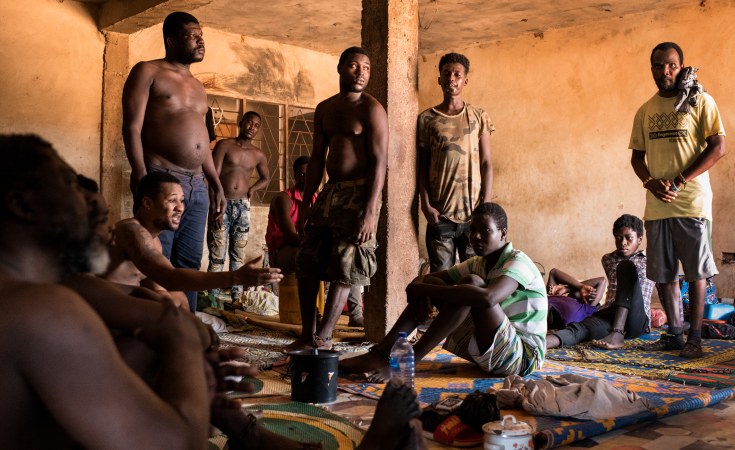Cape Town — A Human Rights Watch report on the shackling of people with mental conditions says shackling is mostly practised by families, faith healers or non-medical staff, often when there are no mental health services.
It identifies the following ways in which the mentally ill are confined:
- “Using metallic chains, iron manacles or spreader rods, metal leg or hand cuffs, or wooden stocks;
- “Tying or binding [people] with rope or makeshift cloth; or
- “Locking them in a confined space such as a room outside or within a house, shed, hut, cage, or animal shelter (including chicken coops, pig pens, or goat sheds).”
Its report, “Living in Chains: Shackling of People with Psychosocial Disabilities Worldwide” recounts the experiences of sufferers in a number of African countries:
“I’ve been chained for five years. The chain is so heavy. It doesn’t feel right; it makes me sad. I stay in a small room with seven men. I’m not allowed to wear clothes, only underwear. I have to go to the toilet in a bucket. I eat porridge in the morning and if I’m lucky, I find bread at night, but not every night…. It’s not how a human being is supposed to be. A human being should be free.” – Paul, a man chained in a faith healing institution, Kenya, February 2020
“I go to the toilet in nylon bags, until they take it away at night. I last took a bath days ago. I eat here once a day. I am not free to walk about. At night I sleep inside the house. I stay in a different place from the men. I hate the shackles. I want to move about, I have asked the baba [faith healer] to take them off, but he won’t.” – A woman with a psychosocial disability chained at a church, Abeokuta, Nigeria, September 2019.
“I was chained, beaten, and given devil incense. They feel you’re possessed and put liquid down your nose to drive out the devil.” – Benjamin, 40, mental health advocate who was chained at a church in Monteserrado, Liberia, February 2020
“People in the neighborhood say that I’m mad [maluca or n’lhanyi]. I was taken to a traditional healing centre where they cut my wrists to introduce medicine and another one where a witch doctor made me take baths with chicken blood.” – Fiera, 42, woman with a psychosocial disability, Maputo, Mozambique, November 2019.
Amina, who had a breakdown after her mother died and was taken to various Islamic healers, said she was tied with ropes, beaten, and spat on in one rehabilitation centre in Kaduna, and then molested by a traditional healer in Abuja who came to her home: “He told me to undress, that it is the part of the healing process, and then he started touching my body,” Amina said. “Explain to me, how is that part of a healing process? How is that Islamic?”
In 2019 at Adwumu Woho Herbal and Spiritual Centre in Senya Beraku, Ghana, several men who were shackled and arbitrarily detained shouted out to a Human Rights Watch researcher: “Help us get out of the chains. Help us! Help us! We are suffering. They are abusing our rights over here.”
The report was researched and written by Kriti Sharma, senior researcher in the Disability Rights Division at Human Rights Watch, based on research conducted by more than 15 Human Rights Watch researchers between 2011 and 2020.


